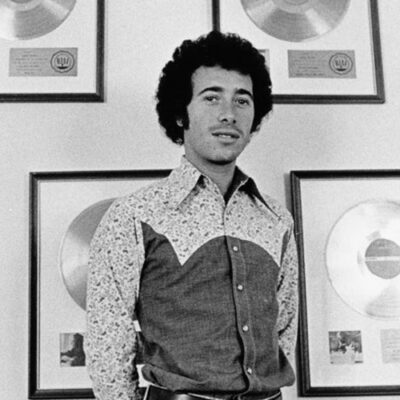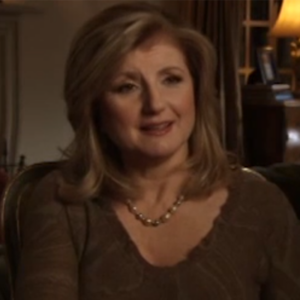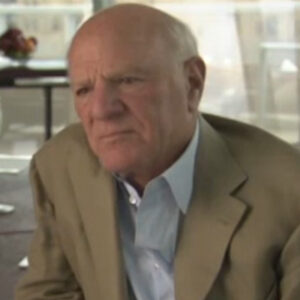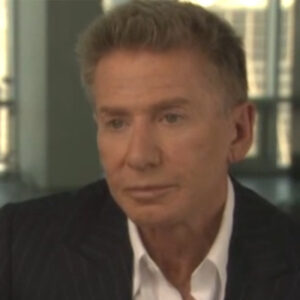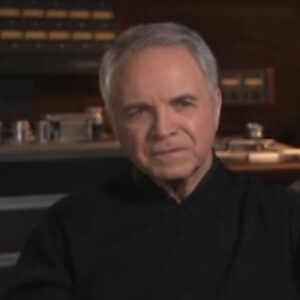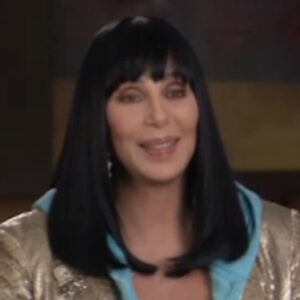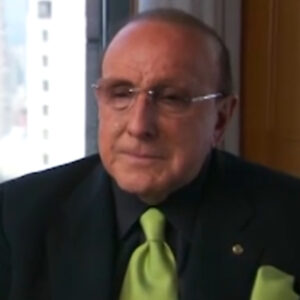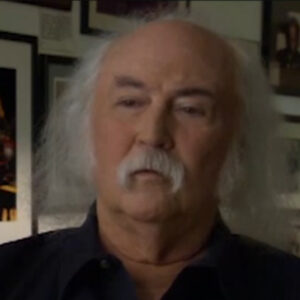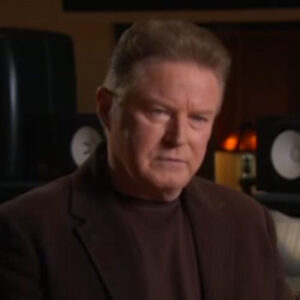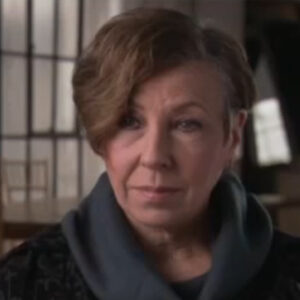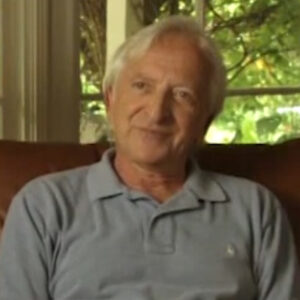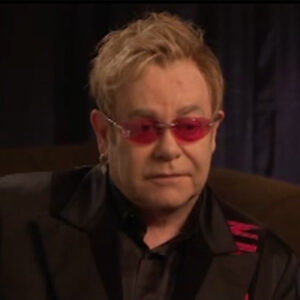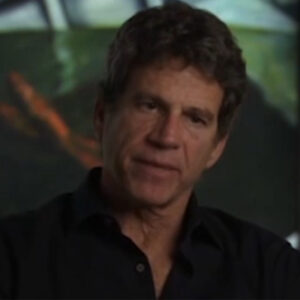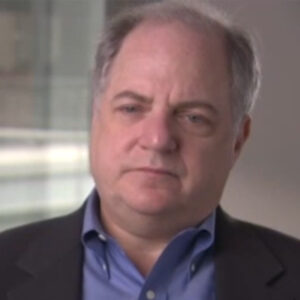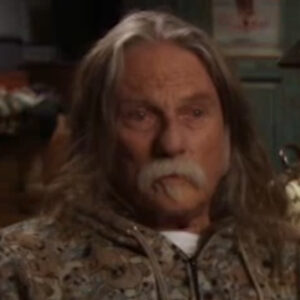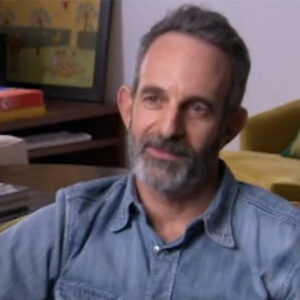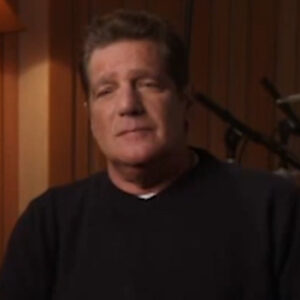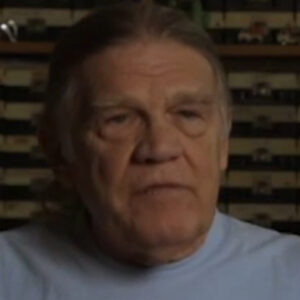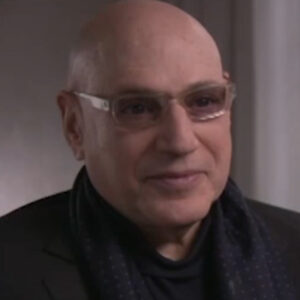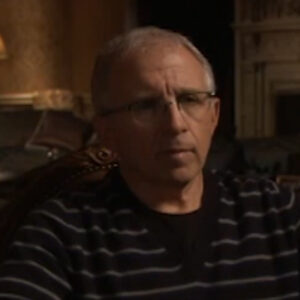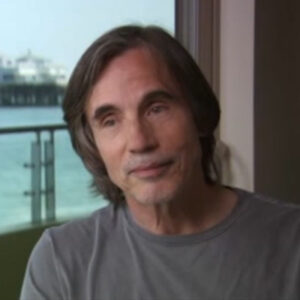Speaker Yeah, I mean, I was when I went to Wonderland Avenue Elementary School and there was just this whole sort of communal vibe going on in Laurel Canyon area and it was really great. It was very, very artistic, you know, very creative, very spiritual in its own sort of quirky way. And everybody knew each other. Everybody was cool. Everybody was sort of down to earth and laid back. And basically it was almost it’s like its own little private society, you know, never any hassles with the cops, so far as I can remember. And yeah, and there was a lot of creative stuff coming out of there. Who was around? Well, I was pretty young. My my biggest memories of the people that my parents were working with. So my dad was working with doing all of Joni Mitchell’s album covers and my mom made her clothes. So that was a main one was Joni Mitchell. But there was a lot of other, you know, stuff going on up in the hills. There’s a lot of different artists. Neil Young, you know, the Eagles guys, there was just and so many people hanging around, you know, I mean, I remember that was my first exposure to the doors. It was back then as well. So there was just like going on. And then, of course, there was my my dad worked for David Geffen. So there was that whole relationship that was happening and he was managing Joni Mitchell.
Speaker And I needed you to. David, was he threatened your family?
Speaker He was. Yeah, he was. He was basically I know David because he was friends with my mom and dad. And since we were doing the main the main person that my parents were working with that I can remember was Joni. And so I was going to recording sessions over at A&M with David all the time, you know, and and also she was writing at home and my mom was doing fittings and my dad was going over the the album cover stuff. And so David was a part of that. And, you know, he had his office down on Sunset, you know, which is really funny because I ended up there years later, you know. But yeah, there was there was definitely a cool vibe. It’s hard for me to really be specific about everything because there was so much going on and I was so young.
Speaker You were like any specific story.
Speaker Like one day we went over to Joni and I just I remember the my biggest memory of Joni, the one that really sticks in my head. I was always at her house. That was one of the things about Laurel Canyon. You could just stay at somebody’s house for days, you know, because it was just it was it was something very sort of freewheeling about that that whole neighborhood anyway. But my biggest memories of Joni back then was really over at A&M and having to sit through, you know, back then everything was recorded live, you know, and being quiet and having to sit through these sessions, which was fun. But at the same time, when you’re like five and six years old, you know, it’s hard to be certain. You have to be told to stay stationary. But that’s that’s the most specific, you know.
Speaker So I think you remember the music beginning. Remember that?
Speaker Oh, yeah. You know, miles of aisles and all that stuff. The ladies of the canyon, all that that was that was the background music to my childhood.
Speaker You know, anything you really like when your mom has been here, like she was strumming on the guitar?
Speaker Well, not necessarily at the same time, but she did a lot of writing in the house. And so she was always playing and singing, you know, and yeah, it was cool. Well, she’s such an amazing artist. I, I always thought Joni was probably one of the most prolific artists of that era, you know, especially as far as a female goes, because she had such an amazing, unique voice and was such a brilliant guitar player and film about her dad.
Speaker Did what did a film about John? I haven’t really kept up with her since then, you know, when she went into her whole Mingus things. But I did see her a few years back. And it was interesting to see her after all these after all these years. And it’s sort of become established at that point. And I was amazed that she even knew who I was going to have to hear that. Yeah. Yeah, well, yeah, my mom just happened to be at this party that we were at. And so it was an interesting, you know, was the first time I’d seen her since I was probably seven or eight years old. Yeah. Maybe, uh, maybe picture to me from that picture. Any pictures? My parents, you know, my mom probably has some pictures. My mom actually passed away just recently, but we have a bunch of stuff and then my dad’s got some photos and whatnot. I’m not really great at keeping memorabilia and keepsakes and all that stuff, so I don’t really have much sort of history laying around.
Speaker It means I think he will do it well somehow. Well, maybe we can find a way to get some of those pictures that you please you you know, it’s a part of the story. You know, it’s a really interesting part of the story. So. So here you were growing up amongst this kind of, I don’t know, sort of I think a little bit and he be laid back things, I couldn’t have put it better myself.
Speaker Right. And then and then the whole free love period and last forward to your own kind of musical awakening, which is quite different to see my own musical awakening.
Speaker Yeah. I mean, that’s a that’s an interesting way of putting it. I mean, I was always I was always into music, you know, very, very particular about what I liked and what I didn’t like and a definite, you know, listen to the radio to sleep every night as a kid. But I just never knew that I was going to pick up an instrument. So I was like living in West Hollywood and I was, you know, literally terrorizing West Hollywood on a BMX bike with a bunch of guys that you might be able to unplug.
Speaker Yeah, a fun doesn’t even work. It works, but you can’t talk and can’t talk. Are you going to have to say yes or and you can’t find the chord.
Speaker It doesn’t come out of the back of the. You know what? The other thing I suppose you could do is take it off the hook. Oh, yeah. So what I was getting at was when I was 15 is when I picked up the guitar. Prior to that, you know, I was I was well, I was listening to a lot of really hard rock stuff, and I was very crazy and very rebellious and yeah, very far removed from sort of the whole peace and love ethic of Laurel Canyon. But at the same time, you know, underneath all that sort of testosterone, hormonally driven, whatever, still have basically a pretty sweet kid that, you know, sort of still had those kind of roots. But I just went through this this very sort of rowdy period where I was racing BMX and and I had this gang of kids ranging from I was the youngest one. So if I was 14, 15, these guys were 18, 19, you know, and really sort of terrorized Hollywood. But I met this kid from the valley who had just been shipped out from the valley to live with his grandparents in West Hollywood, basically kicked out of his mom’s house, which was Steve Adler, who was the original drummer for Guns N Roses. And he and I met I met him tumbling off a skateboard at this elementary school that we used to hang out at after hours and smoke weed and ride our bikes and skateboards up these ramps that had there. And so he and I met and he had already at that point decided he was going to be the rock lifestyle and the whole sort of rock fantasy was for him. And he had an electric guitar and and used to beat on pots and pans when his grandparents went to work in the morning. So anyway, so he and I were hanging out and we decided to start a band and I picked up the guitar. And then everything basically sort of changed at that point, became completely engrossed. So I went like in a 24 hour period from Bicycle’s and insanity to guitar, you know, 16 hours a day. And that’s how that all started. But I think a lot of a lot of you know, even though I kind of I sort of have a very hard rock kind of persona, and that’s basically what it is. I do. I still have, like, all these sort of old school influences from coming up, which have a lot to do with how how wide my ranges as far as being a musician is concerned. So it’s pretty different than the other guys.
Speaker Yeah, well, it was it wasn’t primarily just Van Halen, you know, because that was what was happening at that age. And so most of my peers were all influenced by their background, pretty much stops at Van Halen and probably not too many of them.
Speaker I don’t think so.
Speaker You will see it.
Speaker There are Smith was the band that I think they had this, you know, had this record called Rocks, which was the record I got turned on to. It’s a funny story. I was I was courting this girl who was a little bit older than I was.
Speaker And so now so I was I was chasing this girl around. And finally she she let me come over to her apartment when her mom was out of town or something. And I went over there and I was like, she had the candles and said, you know, like sort of like, you know, record collection.
Speaker That was really cool. And it’s this whole vibe that was going on. And at some point. It on the rocks record, and I’d actually heard it before at somebody else’s house. I remember getting drawn to it anyway. So she put and then I just focused on this record and I hadn’t picked up the guitar yet. It might have just been like about to happen. So that’s that record, just like, you know, that whole sort of back in the saddle that that crazy kind of bluesy but very loud rock and roll kind of vibe, sort of like the Stones on 10. You know, that’s that’s sort of like that that was the the direction that I went in. You know, it’s like that’s that spoke to me and so off I went. So, yeah, Aerosmith was the catalyst for the direction that I ended up taking Aerosmith totally seminal for me, but obviously did not have the same effect on me.
Speaker Yeah, well, I didn’t get laid so pretty busy.
Speaker Yeah. I mean, eventually she kicked me out. She said you got to go and I did. Yeah. I didn’t talk to me for I don’t remember ever talking to her again. Really.
Speaker So, so I mean years later it wasn’t didn’t Aerosmith, together with the Aerosmith signed to Geffen before us.
Speaker They did this record called Done with Mirrors. I think it was like 1984, 85 or something like that. And they just gotten back together.
Speaker And so they signed with Geffen indications, you know, done with mirrors, which was the first record that they did when they got back together, which wasn’t very successful, obviously, but it did have Aerosmith version of Joe Perry’s Let the Music Do the talking. So but it didn’t it wasn’t a big success. So they decided to John Kalodner and other people over at the Geffen. Geffen was a brilliant record company, one the last great record comes anyway. So so John Clotaire decided to put them together with some songwriters and make Aerosmith into a commercially viable entity.
Speaker So what was the I clot? There obviously was a character. I mean, can you describe him just I mean.
Speaker Well, you know, you always wear a white suit and had a beard down to his navel.
Speaker So, yeah, he’s odd looking kind of guy with the creaky voice. Hey, Slash definitely a character, but but one of the great and our individuals of the industry, I mean, he had a vision. Oh, yeah. Yeah. Well, you know, he a lot of these in our people, the great ones, they really love music and they really get it. And they they have a huge talent, which is unfortunately no longer needed in this business, which is ridiculous.
Speaker But just to him and I were talking about that on the way over here, because spending that time a time talking about 30 years is very educational for me to hear. Because you don’t realize I mean, we can talk about this and we should, which is that, you know, you guys were saying we should talk about your story and how you decide when it’s so funny. But there was some real artist development going on.
Speaker Yeah. Yeah. Well, I mean, you know, like, it doesn’t exist now, which just is gives you an idea of how corporate and how the lack of creative creativity that’s going on in the music industry right now. But in our guys, these are guys who were seriously diehard, passionate for music and and were out there looking for really great artists. And with the way for a young artist to be discovered was to be out there toiling away, playing clubs. And hopefully somebody with a vision would come in and recognize their talent and pick them up and develop them and all that kind of stuff.
Speaker And, you know, Tom Zaatar John Cliveden, there were two of the main guys in that that aspect of the business that I knew from Geffen, you know, when we first got our first record and, you know, like times is hard when when Guns and Roses was, you know, became sort of like the biggest buzz on the Sunset Strip. Tom came down and saw us at the Troubadour one night and, you know, and basically saw something. I mean, we sort of knew we were cool. And but, you know, our vantage point was different than the some guy from a record company who’s actually already signed a couple of very successful artists and came in and saw this this crazy, rowdy, insanely loud, dangerous, you know, go for broke rock and roll band in a tiny place at the Troubadour, which I used to go to the Troubadour when I was a kid to see like Helen Reddy and all these other people with my parents anyway. So he can be like a legendary player. Yeah, Doug Weston’s troubadour I was was a place where all the really great artists in the 60s and early 70s, you know, did gigs. So so we did the show and we we met with Tom and he was really enthusiastic. And basically we signed with Tom like we knew that we were going to sign with him, even though we recorded by. Every record company after that, and we took all the free lunches and all the free cocktails as much as we could get knowing that we were going to sign with Tom, because when we first met him, he was the only guy that said something to the effect of we reminded him of, you know, the best thing since old AC DC live back in 1970, blah, blah, blah. And we were like, he gets it. So we were, you know, just that was extremely endearing and and, you know, and it was pretty much a done deal at that point.
Speaker So but wasn’t there some story about first of all, I want to tell you, we were talking to Tony today. He said at that show. At the humidor. Yeah. It was like he was crawling with.
Speaker Well, yeah, that was the thing is, Tom, Tom showed up watch this for a couple of minutes and then disappeared. And he didn’t want anybody to know that he thought we were hot. So he put the word out that he didn’t like, you know, he didn’t like us, you know, but he’d already smoked us. So we knew he like. Yeah, but he didn’t want everybody else, you know, coming after us. But eventually, you know, that happened.
Speaker Anyhow, the other thing is all of this was a joke, but nobody was quite used to a sound that loud. All right.
Speaker So all these guys were there, the whole crowd and like everyone had like is like three years and like literally like rolled up napkins and their cigarette butts right there.
Speaker And he went and they ran cigarette butts. I never heard that said he was there.
Speaker And he ran into one of the energises as he was walking out, they said, are we safe? Yeah.
Speaker And then he got and he’s like, if you think you’re so great, Tom’s like, what are you doing out here? And he’s like, I can hear from you.
Speaker Yeah, I don’t know that one. I never heard that. Yeah, very funny.
Speaker So basically you would meet Tom already, but you never really had a notion of what happened was I mean, what did you have a record stand?
Speaker Well, you know, it’s one of the great things about sort of us kids and guns. The guys in Guns and Roses and Guns and Roses as a whole is that we didn’t have like a lot of preconceived notions about the business. You know, I mean, there was sort of the big and bigger than life illusion of what the business was, but we never really got that into what we were so into doing the gigs and writing songs and and wherever it was we were at at the moment. And then at the point when sort of like people started getting interested in us, it was, you know, we had like the Kim families and all these other sort of seedy characters coming out of the underbelly that were like trying to sign us to deals. And luckily, we were we we were shrewd enough and street smart enough to avoid those particular situations. But we still managed to get like all kinds of drugs off of them and free lunch and, you know, even if it was just Denny’s or whatever. And and then so when all the real record people and, you know, guys like Tom and people from other labels started coming around, we didn’t have, like, this preconceived notion of what we thought it should be. You know, we didn’t have, like, this big fantasy. It was sort of like we we were so into just what we were doing and preserving that and keeping that intact that we weren’t going to sell out for anybody. So when Tom came along, that that comment about AC DC and him getting it and some other conversations that we had that made us really appreciate where he was coming from, that was it. That’s all we needed to hear. It wasn’t about money necessarily. It wasn’t about cars. It wasn’t about jets.
Speaker It wasn’t about any other that most in our people will try and sell you on, you know, sort of like the big the sort of rock and roll dream thing.
Speaker Yeah. Yeah. Well, you know, all things considered.
Speaker OK, so anyways, to Tom Tom, I think the pressure on you, but yet you’re getting quarter by all but you.
Speaker What you asked me is what did we think about. That’s right. I so I didn’t think anything about Gavin and I really didn’t think about Geffen as it pertains to David. There was other bands like Aerosmith. There was a couple of local bands, black and blue and whatever else that were signed to Geffen. And it seemed like a great idea to be signed to a record company, you know, at some point so we could put out an album. But I never thought about Geffen per say, you know, like Tom was the end for me to hook up with David or anything like that.
Speaker So I had absolutely no sort of influence on my.
Speaker My sort of image of what Gaffin was, but I mean, did you I mean, somewhere in the back of your head, you must have been like, well, that David Geffen was successful, dude, you know, or I mean, which was I don’t I don’t remember.
Speaker I want to. That recovery is going to be successful.
Speaker No, I only wanted to I didn’t you know, there’s tons of successful record companies, especially at that time. You know, they were all sort of heavy. Like I said before, it was just Tom’s comment, the fact that he signed Motley Crue and he’d signed I think it was Doc and whatever, and that ACTC comment, you know, it was more like, can he represent can can Geffen represent the band properly? You know, we don’t want to be told what to do. We don’t want anybody telling us how to write our songs without anybody telling us anything about anything, you know, because that’s what kind of band we were. So it was really about us. It wasn’t about them. You know, it to happen. I mean, I didn’t start to really understand how great Geffen was as a company until after we were signed.
Speaker So, uh, just going back.
Speaker But it was cool because it was it was more boutique than, say, Warner Brothers. That was that was an important thing. We wanted to be part of a small sort of organization of people as opposed to a big conglomerate or, you know, or they weren’t conglomerates yet at that point. But like somebody like Warner Brothers that had like 80 billion artists and getting lost in the shuffle and all that kind of stuff. So it had a reputation. So it did it was smaller. There was there was Warner, there was a Geffen, Chrysalis, Elektra, a couple of other ones that all seemed sort of cool. And Atlanta Atlantic, rather. Yeah. Depending on who you signed. That was that was the thing is. Yeah, it’s like, well, they signed Led Zeppelin and AC DC, so Atlantic Center sort of you know, it really it all depended on how it related to what we thought was cool, you know.
Speaker Right. But in the end ended up being that individual connection, which is RCA, which was an ask you just going back before you forget from those days in Laurel Canyon, what were you what do you have memories of David from that period?
Speaker You know, it’s funny. I mean, I have memories of David being really sort of a sweet, you know, sort of genteel, very energetic kind of person, you know, probably the same as he is now. But I had no idea that he was a shrewd a businessman, as he is. And I I’ve never asked my dad about it. But I was. Yes. Did did did did David David ever sort of allude to being the, you know, business maverick that he’s turned out to be? You know, because back then it was a small little management company and then and, you know, obviously had his his his office that took up sort of a block of Sunset Boulevard. But I you know, maybe I was just too young to realize it. My my dad’s a lot like me. He’s more of an artist and he is a businessman. He could care less, you know, so so it’s interesting that he he is a, you know, hyper smart hyperintelligent as he is. He’s as successful as he’s been and made all these great decisions.
Speaker And also interesting that I think with asylum records for you and me and those artists, I mean, you know, Neil it but.
Speaker Well, no, but Crazyhorse was so Neil Young Crazyhorse before Neil Young was associated with Chris was my dad did album covers for Chris Christie. So all that asylum stuff. Yeah.
Speaker But that was a lot more like that was coming, David. But he was sort of his own and like he was very involved in the music in those days, very hands on and whatnot.
Speaker And then, well, that’s how I remember him as being a very creative person, not so much as much not as much of a businessman. But it turns out, you know, that sort of image of that I retained all these years of him being creative. There was a flip side that was that was underwriting all that stuff, you know, and making it all possible to you to get it out there and wheeling and dealing to sort of make it all happen.
Speaker I mean, he was passionate about the music at that time and obviously incredibly close to killing him because he doesn’t have credibility with Jackson Browne. Right. But then years later, FlashForward, you know, lots of other stuff happened in between.
Speaker And then he comes back to start getting records in 1980. And at that point, you know, it really wasn’t his imprint, meaning like it wasn’t about his musical taste. It became, you know, he had Colomer, he had setout, he had Geiger’s and they were the one. So it’s just interesting that you say, you know, I didn’t really think, you know, David Geffen.
Speaker You just thought, yeah, yeah, yeah, yeah, yeah, exactly. I mean, you know, the whole thing with it was he was the president of the record company. I mean, we we had hung out at Geffen a lot prior to signing the actual deal. And I hadn’t seen him until we actually had that meeting. And I never even when he and I first or, you know, like the first meeting that we had with David, I never I was I was too prideful and and also too suspicious of getting into this whole like, hey, remember me from back in the day kind of thing. It could have played out two ways, I could have used it to try and help sort of, you know, as an advantage to get a better deal, or he might have used it against me to get a lesser deal, you know, to get us for cheaper because we had this family tie. So it was it was never mentioned. And so when the five of us and Tom Za’atar were sitting in David’s office negotiating our first record deal, it was never brought up. And it wasn’t until after the band was signed and we were on the road that David came to me one day.
Speaker And I from now, I mean, we we had that that meeting when we negotiated. OK, no, OK.
Speaker I know it was I was going to say, David, the the relationship that David and I, you know, had basically we didn’t he didn’t know who I was until I guess at some point he called my mom and asked about the kids and she said to him, something to the effect of, well, you should know he’s on your record label. And she goes he goes, which band? And Guns and Roses, which one slash? And so that probably was a tribute to him. So we’d already done the negotiation. All that stuff was done. And I was on tour and I got this phone call saying that David Geffen is going to come see you at the hotel, wherever that was somewhere in the U.S. And, you know, I was I was, you know, that that guy that I sort of the image that I guess very public persona that that I have and had, especially back then, I was that guy for sure. And he he showed up one morning for breakfast. And I don’t think I ordered breakfast to eat in any time in three years or whatever it was that I can remember. And all I had was cigarettes and Jack Daniels for breakfast. And so and he sat down, he goes, so I mean, he must have really been looking at me like.
Speaker You know, I was very self-destructive and probably didn’t look like I would last a minute, and so I’m sitting there with my whiskey and my cigarettes, and this is the first time that we’ve we’ve had a conversation where I was now saw that the son of Ola and Tony Hudson that he’d known since, you know, and and he was asking me questions like, what are you going to do with all the money? And I was like, I didn’t I don’t remember what I said to him, but I was definitely sort of not going to give in to any kind of, you know, say hi, David and all this stuff.
Speaker But I was just too much of a punk to really sort of let my guard down, you know? So that’s that was the first conversation that we had for years, you know, probably up until, you know, in the very early 90s, right before the end of the company. And Axel was such a pain in the ass and all that stuff was going on. David, how would you know? David David’s a very sweet guy, is shrewd, a businessman as he is. And and as tough as he is, he’s really a sweet natured person.
Speaker And the kind of person that Axl was is something that is hard for anybody to understand, but especially somebody like David. So they never they didn’t have a good relationship. And towards the end, when things were getting really hairy for Geffen and guns needed to put out a record and this and that and the other, he came to me for a few times, came to me a few times for some, you know, words of advice, what can I do? I mean, blah, blah, blah, and to no avail for David. Anything happening. But yeah. So that was it. Well, because Axl was impossible. You know, a record company does function as a business that sort of has to get on with getting on with things. And one of its biggest artists, you know, can’t, you know, can’t produce anything on any kind of a time schedule. And David couldn’t understand why. You know, and there was a point there where it seemed like, OK, let’s get this done with, you know, let’s let’s get this record out, you know? So use your illusions album. And it’s taking a really long time. And it was a lot of money that had gone into them and so on, so forth. Anyway, whatever it came to the Guns and Roses, there’s no amount of reasoning that’s going to get anything done any faster than it’s going to get done.
Speaker You know, it’s frustrating, you know, and I seemed I guess after a while he started to realize that although I did have this sort of drunken, rowdy persona on the outside, I was actually one of the more levelheaded of the individuals in the band. And he would come to me to to see what he could find out, you know. But yeah, Dave is great. And it was it was it was a drag at the end when when Geffen, you know, he basically I’m not sure exactly sold the company. And it was a very sad time over at Geffen.
Speaker You know, watching all the guys with their their their their desks, their offices all tucked into these boxes and walking down Sunset Boulevard all at the same time. Anyway, I’m sorry. Hmm. Oh, tell me.
Speaker I think the thing that made that Geffen so special for a band like Guns and Roses when we first started was we definitely needed that sort of a little bit of personal attention because the band was really volatile and it needed people around it that understood it to help it get along, because otherwise it was us against them all the way. And we fought to to to the you know, went to the mats with everything.
Speaker And so we can start over again because we had. That’s OK. You just keep going. Right.
Speaker So so having just like Tom Xuetong and Ed Rosenblat and and David Geffen to sort of deal with bride and thorns and so on, all these shows are like our, you know, immediate people.
Speaker And it was great. And then, you know, that was in 1987, 88, 89. Then in the 90s, we got really, really huge. And at that point, you know, it was like a lot having to do with sort of who Axilla had become at that point. We didn’t have a relationship directly with the record company more as a group.
Speaker So when when when Geffen was sold, you know, a little bit later on, it was more of a personal thing for me, not for the group. It was more, you know, something that I recognized by the individuals who really worked hard and had a lot to do with the success of Guns N Roses. I really recognized. So that was the sad thing for me.
Speaker You know, if the group had stayed together, it would have went on. I just did its thing. But I you know, all things considered, there was there was another dynamic internally that was going on anyway, so and so, you know, we missed a couple of things.
Speaker I think going back to when you really first time everyone thought, I don’t really think something like axolotl, you guys I talked to guys who talk to me now, and you said to him, we want to side with you.
Speaker We need X amount of money by Friday.
Speaker All right. Do you remember? Yeah, there was there was a number that we wanted to have met by the record company and everybody there was other you know, there was offers that were going to match that. And we wanted it an answer from Geffen within a certain amount of time.
Speaker Sort of funny because because, you know, is like a bunch of punk sitting around wielding this little bit of power that the first time we’ve ever had any sort of like potential control of any situation and in testing the waters to see what we could get away with.
Speaker So did they need you? Oh, yeah. Yeah, no, they met. And I think really what happened was, was we had this meeting with with David and and the number was proposed. And so there was really I think it was like a 48 hour period. I could be wrong, but it’s a very short amount of time that he had to come back with the right answer. So it happened, you know, and, you know, looking back on it now, it wasn’t.
Speaker But I think my my share of my advance at that point was seven thousand five hundred dollars.
Speaker And I had a I had a aleen from the bank, you know, or the IRS or other because of a job that I had had prior had a tax situation. So I couldn’t put my money in the bank. So I was walking around with seven thousand five hundred dollars in traveler’s checks.
Speaker And a drug problem was so, you know, it seemed like a big deal at the time, a lot of money at the time.
Speaker Not good to have cash burning a hole in your pocket.
Speaker I tried not to. You know, I did. I tried. I said only 100 hundred dollars a day. Yeah, but it didn’t last very long.
Speaker Yeah, I it recognized you. So he would have been so worried.
Speaker You would say don’t give him the money. Yeah. Yeah.
Speaker Well you know, I’m not really sure, you know, because it was such a day in the life for us.
Speaker I’m not really sure what other people’s perceptions of us were, you know, like someone like David who was sitting on the other side of a desk looking at this group of scruffy kids. But everybody was scared of us. We couldn’t find a producer because nobody wanted to work with us. The only reason that the record companies wanted us is because we were so hot at that time, you know, because everybody was petrified of, you know, being in a room with us or anything like that because they just you didn’t know it was going to happen, you know.
Speaker So I it’s funny. David had known that I was sore, he probably would have been made it very hard for me to just sort of be myself at that point, you know, and he didn’t do anything.
Speaker Yeah, I mean, this probably worked out for the best. I can’t believe they didn’t recognize you.
Speaker You know, if I showed you I mean, I always had long hair and stuff, but just what are the odds, you know, and that that, you know, all Antone’s kids are going to be sitting in your office asking for, you know, 300 grand or whatever it was, as your dad told us that.
Speaker That you said to him, just don’t use my name.
Speaker Yeah, that’s possible. I mean, I think I think it was it’s funny you should bring that up. I think there was a moment there where I told Tom what was going on and I said, don’t, don’t. I don’t know. I don’t really know. I don’t remember ever telling him.
Speaker You just said, please. Really? Yeah. OK, you said if you didn’t know why. Yeah, I don’t I don’t remember even saying that, but OK, what happened was that later on would like you say, like you did then he said, you know my son, congratulations on the success of something like that. I’m so excited that my store is under way. And and then, you know, he hung up the phone and immediately called Tom. It is like, why did you want to tell me that?
Speaker I was, like, athletically upset, you know, that he didn’t have a for me.
Speaker Yeah, well, you know. Yeah, because, I mean, just he could have he could have been so much more manipulative had he known that. And that’s what I was afraid of, if you were right.
Speaker And that’s very protective of, you know, one other story that it’s true.
Speaker Was there something about you guys met with someone at Chrysalis who was supposed to go naked down to Susan?
Speaker I remember her last name, but I think, you know, Christless was the other label that was the closest, you know, they, you know, had Billy Idol at that point and seemed to get it. But it always seemed like to me I just had a problem. I didn’t like the name Christless, just, you know, this whole butterfly thing. And and and and the officers are always too bright, you know, whatever it is, you know, the first impressions. So I didn’t want to go to to Susan Collins. I didn’t want to go to crystalised, but they were recording us pretty hard. And a lot of you know, a lot of we must have ran a huge bar tab with those guys. And and they really were trying. And at one point, Axl said, only if you walk down sunset naked are we going to sign this deal, something to that effect.
Speaker But it never happens, which is probably good that he was, you know, out the window, Geffen Records leading right. Be they were right across the street on pins and needles. He does it, you know.
Speaker But the other thing was that the president or somebody didn’t know Aerosmith and and said, oh, that you guys that the only way I was. Yeah, that was when one was.
Speaker What’s the guy’s name. Oh, the president. Yeah. I remember his name. He didn’t know who he didn’t know who Aerosmith was. And that’s, that was that’s what started the whole thing with Susan.
Speaker So I mean, how could you find him.
Speaker Well, yeah. Well, like I said before, one of the things one of the major things that sort of helped us make decisions was, you know what, based on what we thought was cool, what these whoever the company, what they had done, what they’d represented, who that who their clients were, whatever, and that sort of helped us helped dictate, you know, where we felt comfortable. And so if the guy didn’t know who Aerosmith was, how is he possibly how could we possibly hang out there?
Speaker You know, what was I mean, what was the vibe again then? Just like the opposite. Would you walk?
Speaker Oh, the one of the great thing. Well, because I had had a history at Geffen anyway. It was the same office space. Now it was all updated to the eighties at that point. But it was it was quaint and it was it was, you know, sort of cozy. And, you know, whenever you walk into a place and it’s overpowering with designer seats or, you know, just like the kind of vibe where the people who were who were decorating, it looked like they’re trying too hard. Any of that. That’s a huge turnoff, you know, because somebody spends too much money on their office, any of that kind of stuff anyway. But one of the interesting things about Geffen was, like I said, it was it was understated. You know, it was very cool and it wasn’t sort of didn’t give me that kind of trying to hard impression. But the most important thing was a bathroom at one end of the office was there was it was done up when I was a kid with all the sort of very 60s type mural of a little photographs taken out of magazines and stuff and all sort of slapped together. And it was just this really colorful little bathroom and that remained intact. And so I went in there one day and went to go, you know, use the bathroom. And I was like just took me back to my childhood. And that that was that was great. That was one of those things. I was like, that was really a sweet touch to leave that intact.
Speaker Yes. No, at no point after that, it was like you and your mom and David in a room together. Not that. No, I mean, at that point, did she say she didn’t? But your mom did say. Anything to you about like that? I mean, at that point, it I be that like, oh, this is great, you should something together.
Speaker Well, I didn’t tell I didn’t tell my mom that we were signing a Gaffin either. You know, at that point, I was I don’t think I’d even talk to my mom in a while. I was sort of like just, you know, running around with this band for a few years. And I wasn’t really telling her or communicating her what was going on with me, you know, so so after we signed the record deal or whatever, I’m sure I told her and and she was probably you know, I don’t remember even telling her about David at that point. I’m sure I did. I Muzo. So it’s hard for me to remember all the little details about all this stuff with the height of your rebellious.
Speaker I was surprised by any of us. Yeah, I know. My parents are cool.
Speaker It wasn’t that. It was just I was just too busy. I, I didn’t sort of shop talk with my parents about this and that. The other, you know, it wasn’t really a rebellious thing how you be rebellious against two like the biggest sort of free, free and easy hippies of the 60s. It’s like, you know, there’s nothing to rebel against.
Speaker You wait till you wake up. Did you really did you live did you live, like, down the street from you know what?
Speaker When I was a kid. Yeah.
Speaker We lived up the street from Gionet like, I don’t know, a couple of blocks away, but I mean, in Laurel Canyon or here in Laurel Canyon, I look at it.
Speaker Right, OK, so but I did go back when the first house that I bought when I finally made some money was in Montana is actually Lookout Mountain, because that’s a place I felt the most comfortable, you know, but at Laurel Canyon is sort of a shell of its former self. So I I had a very tumultuous stay of there probably for about three years or something, and ended up sort of just actually had that house. And I sold it and was sort of just slumming it for a while, you know, in West Hollywood and here and there. But it was it was actually very cool to sort of go back there and buy a little house and sort of try and reinvent that vibe, I guess, sort of subconsciously. But I’m sure that’s what I was doing.
Speaker Well, geographically, it’s an interesting place anyway. So pretty.
Speaker I mean, besides all the stuff, you can’t go anywhere after five, you know, from five o’clock until eight o’clock, Laurel Canyon is jam packed and you can’t leave your house. Yeah.
Speaker So I decided to. And you guys, you’ve got to be there to get this cash for you. You got it. What I mean, was there a period where they were like, stop digging, we want you to leave after we signed the deal?
Speaker Yeah. The thing they wanted to do was basically to lay low, don’t do any shows. And, you know, the record companies, quiet way of saying work on your material, you know, be good and let’s try and find you a producer and go in and make a record and, you know, so so we’re like not doing any.
Speaker I was just asking for trouble, which, you know, basically it did because we didn’t know how to sit still for very long.
Speaker But we signed and we signed in in 80, I guess it was 85 and we didn’t make the record until 87 where it didn’t come out till 87.
Speaker So that couple of years was just a blur, but a lot of debauchery. It was going on during that period. And I think, you know, and we couldn’t like I was saying before, nobody, you know, we’d have meetings with producers. And this it just wasn’t going anywhere. Tom couldn’t find anybody that was willing to managers or producers. And there was a lot of times where when there was murmurings of us getting kicked off the label and all this other stuff. And I think it was Tom was really instrumental in keeping us signed, you know, I mean, we just had such a horrible reputation and we were always getting in trouble and it just looked bad.
Speaker Just, you know, it’s just stuff mean. Like I said, I think that, yeah, people got arrested.
Speaker People got in all kinds of trouble for all kinds of things. Just it just it didn’t seem like a worthwhile investment. It seems so implosive that why bother, you know? But, you know, Tom’s right. You know, I got to give it to him. He saw something more in us than I did, you know.
Speaker So you were legless then? You eventually found a producer in the studio.
Speaker We eventually found a producer and a manager. You know, Tom found a guy, Alan Nivan, who was came from Virgin. And and he actually was great in helping get things moving and getting things moving and really understanding the sort of band it was and coming from a little bit more hard edged background so that he could handle what we were all about, you know, recording them. And we recorded in Los Angeles. Yeah. And Mike Klencke came along to producers who was really just an engineer, but managed just to sort of capture the band’s live sound, which is basically all that we were asking for.
Speaker And then at that point, we were off and running, you know, did you and you had written all the songs prior?
Speaker Well, we had we had a lot of the songs written before the record contract. And then there was a couple of songs that were written post record contract, a sweet child of mine being one of them. So I guess that was a worthwhile little siesta that we took.
Speaker So you make this record and the way I understand it, from time of reading about it instead of studying it, is that the album selling it, you couldn’t get on MTV or much radio play. So it had kind of leveled off a certain point. Yet you guys, I’m sure, were happy that the record itself.
Speaker Now, I don’t even remember anything about the record even selling.
Speaker You know, I didn’t really pay much attention to it. That was that was a detail that didn’t necessarily interest me. Hold on a second. It’s OK. OK. Anyway, yeah, how many records it sold wasn’t really an interest to me, but no, we couldn’t get on MTV. We did shoot a video, we couldn’t get on MTV. And and no, the radio wouldn’t play it. And then we would first single was welcome to the Jungle. And I think the next one we ended up going with was Sweet Child of mine. And I just was like this big breakthrough hit for us.
Speaker Well, wait, wait time expletive. I’m sure you weren’t paying attention. Easy to find. Interesting is that I think the record sold like 200000 units or something.
Speaker No, that’s right. That I remember that 200000 little over 200000 units.
Speaker And Tsingtao, it was like went to a meeting one day, like all the guys at Gaffin or whatever, like some big creative meeting with the promoters promotion guys. And and he was like, listen, this record is not even begun to gain traction.
Speaker I’m telling you guys, they were like, this record’s done. You know, we need to move on. You got to stop promoting these things like, no, we don’t understand you. You you wouldn’t let it go. So we went up to see David Geffen because they basically said he was black, said get lost. He said, you know what to do to get his office. And David said, what’s the one thing I can do to help you get their video played at MTV? Now, I don’t quite understand why MTV wouldn’t have to do it was just like too rebellious.
Speaker Writes bad language. I don’t know. What was it?
Speaker Well, when you’re talking to me, I mean, I didn’t care. So whatever the story was for why things weren’t working, you know, that was all sort of part of our charm. You know, we were so anti-establishment. And of course, they’re not going to play our videos. You know, we weren’t playing ball with MTV or any of that kind of stuff. So the stuff that was going on behind the scenes at the record company and all that hustle and bustle that was going on there, I wasn’t really privy to the details of all that, however.
Speaker So David made two copies would have gave me to Call of Time Pressure and MTV and said, you got to get this video played.
Speaker You know, don’t you do something horrible to Tom Freston? Did he do something positive? I did. Yeah, you did. Yeah, that was later. That was not part of the story. It’s unclear.
Speaker So so anyway, Freston agreed to play it at three a.m. East Coast, midnight West Coast. And the video goes on the date and the ways you can tell he was with you guys and you guys watched it on MTV and you were like, hey, there’s our video on MTV, not knowing anything, partying all night or whatever. And then he gets it the next day and he has like 30 messages. It’s from the switchboard. MTV had been lighting up like crazy people for lack of the video.
Speaker Now, was that switch on the mind or was it was it. Welcome to the jungle. Really? OK, because I know why. Because as far as I was concerned, that video never did, Jack. But maybe the fact that they played it a couple of times, I mean, because nothing really caught on as far as that goes until the switch, although I think came out. Then all of a sudden we became sort of MTV darlings. But prior to that, even if they did, if they refused to play it at all and then they just decided to play it. Yeah, they played it like, you know, it’s sort of bottom rotation kind of thing at best.
Speaker So then you guys really exploded at that point.
Speaker I mean, there was a period when you were selling well and whatever, but then there was a period when it was a band and then you were off the charts.
Speaker That’s what he told you? Well, that’s that’s what the statistics, OK?
Speaker I mean, you know, and then I mean, let’s see in the first year and a half and then after that, yeah, we we put jungle out.
Speaker It was the beginning. I mean, that was pretty early on. So when we only sold 200000 records, that that video had been out. So we shot that pretty early. So it was it was sweet. Child of mine came out. That was two years into it then. Yeah, it exploded. So he’s just trying to to get clear exactly what the timeline is because it was in 89 and and Sweet Child came out and we were opening for Aerosmith and that was a very explosive moment. Welcome to The Jungle. Didn’t do Jack Ruby for Aerosmith.
Speaker You must have been like, OK, now I’m living the dream.
Speaker Oh, then it was awesome. Yeah.
Speaker I mean, I was trying to get exactly where you were getting at, just the fact that I thought it was kind of unusual and I could be wrong, but I thought it was kind of unusual that, like, your your record is out for quite some.
Speaker Oh, yeah. No, it was it was way it was way odd to have a you know, we were we were opening up for everybody that would have us Alice Cooper, Motley Crue, the cult, Iron Maiden. And we were out there toiling away for for two years. We built up a little bit of a fan base. But realistically, you know, it was nothing really to write home about.
Speaker And then, you know, what went on behind the scenes as far as putting sweet child of mine out? I’m not really sure. I just remember that was the next single. We had to go shoot a video. I remember going to shoot the video. Everybody’s girlfriends were there. I was in a bad mood. And it was just like and I I really wasn’t very fond of that song anyway. And and then so we were on the road and it came out and all of a sudden, yeah, we were all over MTV. And then we got the really ironic thing was they managed Tom managed to talk. Bill was what was his name, Bill, Tim Collins into letting us open for Aerosmith and Aerosmith. They just spent all this time and money getting clean and, you know, going to rehab and doing all the stuff.
Speaker And Tom took Tom and Alan, our manager, took us over to Tim Collins hotel room. And Tim Collins got up at one point and he went, this is sort of to coerce him into letting us open for for his his Aerosmith guys. And he got up and went to the bathroom. And we ordered, like, however many thousand dollars with the room service. So I was in the bathroom. So he comes out and he’s sitting down and we’re still trying to pitch him this whole like we’d be perfect opening for Aerosmith. There’s a knock on the door and, you know, there’s like the entire hotel bars on this big tray. And anyhow but somehow they managed to get us on that bill.
Speaker And so it was really during that tour that we realized that all the arenas and and sheds that we were playing were all full when we were actually opening. And it was it was weird because we didn’t really, at least for me personally, and I know that the other guys, we never had a conversation about it, but I don’t think we really knew what was happening and that people were getting there early to see us. And we were actually selling most of Arrowsmith’s tickets at that point. So that was a very interesting transition from obscurity to national prominence, you know, and it was that was that was a lot of fun, you know, because we were the opening band. So we didn’t have the the pressure of being the headliner and having a, you know, hour and a half set to have to go. And on top of it, because we were opening band, we had was a little bit of a challenge to be able to compete with Aerosmith every day, you know, which was good for us because it’s a fighting band, you know, so that that dynamic was great and and that was it. All of a sudden we were huge.
Speaker And, you know, because we were on the road, you didn’t feel it as much. And when the tour was over and then they dropped us back off at the airport, we were like now and then it was really hard.
Speaker There was a lot of adjustment going from being just like these, you know, grungy kids on the street and Hollywood all of a sudden being highly recognizable and all that stuff. It was it was damaging for me. I turned into a very reclusive sort of drug addict that I didn’t leave. I bought that house and Lorcan and didn’t leave for a couple of years. And everybody had their own ways of dealing with that, that that sort of knew that that life change, you know, life lifestyle dynamic. And it took us a couple of years. Well, I was just having money being famous all that. It wasn’t something that we were all sort of aiming for. At least, you know, at least I know, you know, Duff and Steven and myself, it was sort of like I had a hard time adjusting to easy to do. And it took us a while to sort of get it all back together and go in the studio and make another record. But it was interesting because we did that sort of Aerosmith opening tour, we went to Australia and we did Japan and the tour was over and we’ve been out for about three years and started working on the next record eventually. And we got offers to go out and play stadiums. So there was never any sort of like in between. It was opening bands, a stadium band, you know, so heady stuff. Yeah, there was a little crazy, you know.
Speaker I mean, that’s a lot to do with it was it was, you know.
Speaker I mean, wasn’t that it wouldn’t it would have been it would have been probably a little bit easier had it been had I had that sort of like those kind of material desires, like if I’d been aspiring to that. But it really was just all about the band sort of succeeding. And I never really thought about the rest of it. So when it came, it was, wow, you know.
Speaker I mean, that whatever that human race, that’s what my high school or college is all right now is that we have working with people the whole experience because it was very different and it was very galvanizing. Like what you guys were doing was very you know, it just hit stuff.
Speaker Well, like when I was a kid coming up, there were one of the great things about the success of Guns N Roses is I’m more of a rock fan than I am sort of a rock star type guy. And and so a lot of what I think rock and roll is all about was forged in my experiences as a kid.
Speaker So, you know, there was I remember, you know, the people that you hang out with and everybody had certain records in their record collection, if they were cool and this and that and the other, you know, the bands that you listen to, what you had the best sexual experiences when you were a kid coming up and some of the rowdiest times and what was going on, what was on the turntable at that point. And one of the great things about Guns and Roses, which I didn’t really relate to until later, was we were that band that all kids were listening to and going through, you know, all these first time experiences, be it, you know, relationships or jail or whatever it was, we were like the background music to all that. And that, I thought, was one of the most satisfying things about about the sort of Guns N Roses success.
Speaker Yeah. And that’s kind of what your perspective on it. Yeah. Yes. I mean, what else what else is your kind of today’s perspective about that? I think at times I would really be kind of interesting is that that period was kind of the last. Great. Through to like the mid 90s around then, it was kind of like a last resort where the record company meant something as far as like it really, that they had that relationship with the guys that was developing, going on the cared the music a lot, and also that it was reaching people like people were listening to albums. And they’d be like, now people will be like, oh, I like to single this one single. A single, you know, it’s no longer about that where you guys it was like you have a new album.
Speaker You Yeah. It’s it’s so different right now. That was that was one of the. Yeah. The the last of it is the last end of an era. You know, as you went into the 90s it started making a lot of drastic changes and it wasn’t I mean, the last really cool movement was what they they labeled the grunge period. And it was really, really short lived and it was downhill from there. You know, I’d last last records. I really enthusiastically went out and bought all came out somewhere before, you know, 1995. Since then, it’s been like, you know, something cool here or something cool. They’re very hit and miss. And then, you know, the whole industry is just right now, it’s sort of it’s sort of like a little bit of a wasteland. It’s hard to really figure out where it’s at, where it’s going to go, what it’s going to become, you know, and how you’re supposed to sort of you know, how you’re supposed to get on with things in the midst of this great void that we’re in.
Speaker But you just sort of have to, you know, use use your, you know, whatever scruples and sort of figure it all out.
Speaker How do you get young people in a different way? I mean, I don’t know. Yes, for sure. People are going out there and you don’t have people or out. And that’s what’s different that you used to be like when I was a teenager or whatever, when we were coming up as teenagers, everyone had the same I was like everybody went out and got your album. It wasn’t like a couple people were. There’s a couple of things, like everyone was saying the same stuff. So you had some kind of, like, common ground.
Speaker Yeah, no, that’s that’s exactly what I was saying. It was like there were certain albums that everybody had, you know, when I was a kid coming up way before I even picked up a guitar, my parents had an amazing record collection and all their friends had an amazing record collection. And you could go to my house and listen to Led Zeppelin for and go over to So and So’s House and listen to Led Zeppelin for and it would be always like that same vibe, you know, and that’s how everybody sort of connected, you know, the is like you would go to someone’s house and you’d be like you would go through their records. Yeah. You know, and that’s how you get turned on to records that maybe you didn’t have, you know, anyway. I mean, I remember as a kid, I just liked a lot of the artwork. And I also like music as well. But I would relate to the artwork on the album covers and I would go over to somebody else’s house and find that they had the smile recorded by war, you know, and go and put that on over there, you know, keep me busy and keep me out of the adults hair and stuff.
Speaker So that’s that’s really sort of gone. It’s very everything’s is on a laptop and it’s just it’s hard to relate to if you come from from that sort of cool or what we consider cooler time now that it is necessarily cooler, persay, because whatever people are doing now is what they’re doing now, you know.
Speaker Well, then, you know, like, you know, for me, it was like I would get the album that you would just sit there and be miserable. And then you look at the artwork.
Speaker Oh, yeah. It was like I was an it was a it was a whole experience.
Speaker You know what probably made it so, you know, where it would actually take you away, which is one of the reasons why I think so many people wanted to be involved in it, you know, and now I think it’s everybody people don’t have that same sort of quest anymore. It’s all about maybe getting famous. That’s like the big thing now. It’s not about the magic of the whole thing.
Speaker You know, as you could tell, there was a real life story. Yeah, yeah. And what did you not covered. But anyway, I one of thing I want to ask you about, which is I don’t have no idea if you want to talk about. But wasn’t there some kind of controversy there with some lyrics that you had David coming, you guys and asking about that? I mean, not that you could control it at all because I don’t think.
Speaker Well, there were there was we put out this record Guns N Roses, put out this record called G in our Lives, which was it had four acoustic tracks on it and then four in the very early days. We put out this this EP that was supposed to be a bootleg, but it was really sort of funded by Geffen before Appetite came out and had four live songs on it or four songs recorded that had a lot of live tracks on the air, live live audience tracks. Anyhow, so we put out G in Our Lives, which had four original acoustic songs, and those original four live tracks from it was a suicide record and one of the songs was called One in a Million and it had a. A couple of lines in it that I think.
Speaker I think the. We’re in there. It’s been so long, I can’t remember how the lyrics went, but. But but it was, huh?
Speaker The immigrants and the three, OK, and an actual exile had written these lyrics, now, you know, in his defense, because he was such a naive kid from the Midwest, those those words weren’t as offensive to him because that was his reality from him going from Indiana all of a sudden to Los Angeles to Hollywood, you know, the whole sort of Hollywood kind of trip.
Speaker So, you know, I mean, he was talking from the heart. But at the same time, ignorance is not necessarily especially in the 80s. And in it, it just wasn’t accepted.
Speaker And I didn’t accept it. I’m half black. So and I and I was raised around gay people as well. You know, David’s gay. I mean, so it was just really offensive. And David and others had gone to actually try and get him to change these lyrics before the album was released. I’d done it, too, you know, as I I hadn’t tried to actually get sat down and like, let’s change these words to this and this and the other. But I was opposed to the lyrics being in the song that was unnecessary and stupid and so on and so forth. So that just fueled Axl to keep going. So we put it out and there was a ton of backlash. But, you know, I I remember actually getting into a situation in a mall in Chicago with a bunch of brothers that came up to me and cornered me in this thing and. So it was it was it was they knew you were half black, not at the time they were in conversation because I managed to talk my way out of it. Then they they became hip to that.
Speaker And it was like it was all good, you know, but even that but there was there was definitely a period where it was very uncomfortable for a minute.
Speaker And and also because I you know, I had my my name was on a brand that I had just put out a product that was something I had a hard time swallowing. So it was it was uncomfortable. But, yeah, that did happen. And David, I mean.
Speaker Yeah, I mean, David was not exactly out at that.
Speaker Well, I don’t yeah. I have no idea where we’re the sort of where David’s if he’s gone public with the sexual orientation thing or not. But it wasn’t that, you know, like from our end, you know, and when David said something, it wasn’t so much it was just about the fact that it was offensive. And I never even thought about whether it was uncomfortable for David from a public perception of anything, because I don’t know what anybody was thinking about David on that level at that time. But I could understand how it was offensive. And it was also personally offensive for David, you know, because we’re all liberal minded at this point.
Speaker It is. I mean, you know, hip hop was just starting to happen. It seemed pretty, you know, ignorant. The only word that I could think of. But it really did shine a light on Assal where he was coming from and him as a person was all about. And really the only person that really had any extended any flack for any extended time was Axl.
Speaker So that’s the way it went. You know, I mean David at that point anyway, I mean there was a lot of like well first of all, AIDS is just starting. Yeah. It was, you know, in a period where he he wasn’t public. You know, he was a public.
Speaker I mean, everyone is like, how do you think that the only us that knew him knew and he just didn’t think was necessary in my private life? Why should I? Yeah, I think he was getting a lot of flack because it was going on at that time because of all that in the AIDS crisis and everything was like all these people going out, so to speak. He was getting a lot of flak because people were like, how can these not.
Speaker Yeah. And I you know, because we were out on the road and so sort of oblivious to what anybody, you know, what anybody really was saying in the big picture. But, yeah, I could imagine how it’s just the timing of it, how bad it was very insensitive.
Speaker Kind of interesting to you, dropping out of what is being said, the rap, the hip hop and the ghetto was, wow, I forgot about those guys. Your friend Ruben is making this up.
Speaker Yeah. So I wonder what the difference is and why he decided.
Speaker Well, yeah. I mean.
Speaker Well, I mean, see, that’s the thing with Guns N Roses is we were the biggest selling artists on his label at the time and lies came in between the release of appetite or the success of appetite and the release of the next record.
Speaker So we were actually in a very powerful position, you know, and I’m sure when the when when opposition started popping up, Axl, you know, it’s Axle’s nature to fight it head on. So it started to become one of those things. OK, we’ll just let it go. Keep the artists happy about that. Yeah, well, if it had been like in the first in 1987, that definitely wouldn’t have made it on there. We probably would have gotten dropped.

